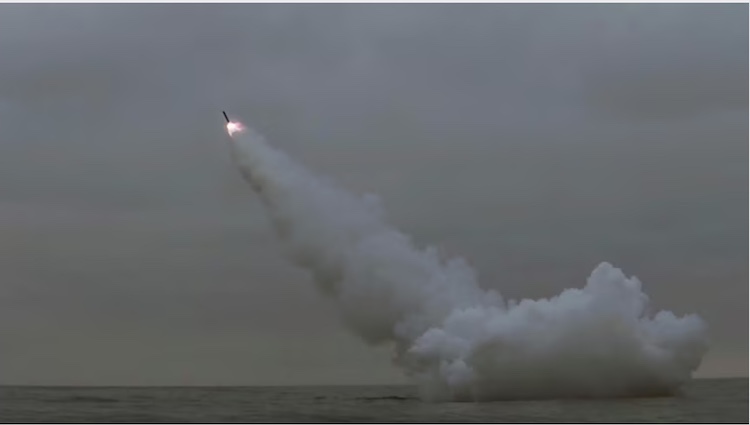By ICAN
BERLIN, 14 March 2023 (IDN) — Nuclear tensions on the Korean peninsula have remained high in the early months of 2023 with North Korea continuing missile tests and the United States and South Korea mounting joint military exercises, including one practicing how to respond to a nuclear attack and others involving nuclear-capable American aircraft.
North Korea is yet to carry out another nuclear test as South Korean intelligence has been predicting, but there have been reports that radioactive contamination from its previous tests has spread and there have been small earthquakes near its testing facilities in the past month.
Recent comments by South Korea’s President Yoon Suk-yeol about the possibility that Seoul could seek to acquire its own nuclear weapons, rather than rely on the US “nuclear umbrella”, have stoked tensions further and following widespread criticism his Prime Minister, Han Duck-soo, has played them down in comments to international media.
During 2022, North Korea carried out more than 40 ballistic missile tests and also announced a new law making its nuclear-armed status “irreversible”, prohibiting talks on denuclearization, and, most worryingly, allowing for pre-emptive use of nuclear weapons.
North Korea justifies its actions as a response to US/South Korean military exercises, and the latter have undoubtedly increased tension in the region.
Furthermore, North Korea’s actions are not happening in a vacuum. Russia’s explicit threats to use nuclear weapons in connection with its invasion of Ukraine, and responses from the US and NATO implying possible retaliation, are normalizing the idea of nuclear weapons use and the decades-long nuclear taboo is being dangerously eroded.
In these circumstances, every additional threat, missile test, military provocation, or declaration of the importance or necessity of nuclear weapons, adds to the risk of catastrophe. This risk spiral is driven by narrow and short-sighted conceptions of national security, where the possession and brandishing of nuclear weapons is seen as a justified response to real or imagined foreign threats.
In the light of this, ICAN’s Interim Executive Director, Daniel Högsta, said: “North Korea must cease its irresponsible and dangerous actions that are further exacerbating the risk of nuclear weapons use, particularly when the nuclear threats issued during Russia’s invasion of Ukraine have brought the world the closest it’s been to nuclear war since the 1980s”. Mr Högsta added: “It is essential that South Korea renounces any intention to develop nuclear weapons and that the US and South Korea show restraint and avoid escalating tensions further”.
The national security rhetoric North Korea uses to justify its missile tests and its new law is similar to that used by Russia, the US, and the other declared nuclear-armed states. Just like them, North Korea repeatedly claims to support nuclear disarmament and a world free of nuclear weapons, while simultaneously asserting that security threats require it to rely on nuclear weapons, and that nuclear disarmament cannot be considered until the security situation is resolved.
But in acting in this way, nuclear-armed states are holding the rest of the world hostage. The wide-ranging and catastrophic humanitarian consequences of any use of nuclear weapons mean that regardless of who owns them, nuclear weapons threaten the security—and the very existence—of all states, and all people.
This is why a growing number of countries have joined the Treaty on the Prohibition of Nuclear Weapons (TPNW). They recognise that total elimination of nuclear weapons is a global security imperative, and the responsibility of all states, not just those with nuclear weapons.
As the risks of the use of nuclear weapons grow, driven by threats, inflammatory rhetoric and the increasing prominence of nuclear weapons in security policies and doctrines, the international community’s response must be to stigmatise and delegitimise nuclear weapons and to build a robust global norm against them. The TPNW offers the most practical way forward for this. [InDepthNews]
Image: This photo, provided by the North Korean government, shows what it says is a cruise missile the country launched from a submarine.(AP: Korean Central News Agency/Korea News Service)


